Scorsese’s “Silence” isn’t just a historical drama; it’s a profound exploration of faith in the face of unimaginable suffering. In this review article, we will delve into themes of doubt, the price of belief, and the human condition in a world seemingly devoid of divine response.
I have long dreamt of doing a Silence Movie Review. When it comes to faith-based movies, I find that most of them are just dogmatic and – well, propagandistic (which makes them more like a religious educational tool rather than real masterpieces that will stay in mind for a long time). Silence is an exception. To me, what’s really interesting about this film is that it does not provide any concrete answer – rather, it just raises questions for us to look inside ourselves and try to figure out our own way (in other words, it stimulates our desire for self-discovery). Whether you are a Christian yourself or not, I would say that you will definitely want to give it a try!
Highlights
- The movie explores the complexities of religious conflict in history, questioning the concept of absolute righteousness.
- Additionally, it also prompts us to reflect on the moral dilemma of religious persecution – whether we should unwaveringly stick to established doctrines (no matter the costs), and whether religious devotion means prioritizing compassion over rigid rules and self-righteousness.
- What does it mean to be a Christian? Is it about conversion and rigid practices, or is it about love and open-mindedness rather?
- We often cling to an idealized image of faith, but is it really true? Is it possible for even flawed individuals to maintain their beliefs?
- In the end, the film concludes with an ambiguous ending – which leaves room for personal interpretation and self-questioning.
How Come Did I Learn About the Silence Film?
Although I am a Christian (a Roman Catholic, to be more specific), watching faith-based movies was not part of my routine back in the day. Previously, I was mostly interested in either action or fiction-based work. As such, when Silence was released in 2016, I had no idea about it.
Until one Sunday, I attended the Mass at a nearby church. When the priest began his sermon, he mentioned the movie and went over its main points – which he later used to support his arguments related to the Reading that day.
As of the moment, I cannot recall exactly what he said – yet I know for sure that at that time, I was completely struck by the fact that he discussed a somehow sensitive movie in his sermon. Especially one that was directed by a controversial director (among Christian communities, I might say).
Mind you, he was one of my favorite priests back in the day. Unlike most other priests who usually just “preached” things in a very theoretical and dogmatic way – like the scribes in the Bible (no offense, that’s just my personal opinion), most of his sermons (I found) were very relatable.
He talked less about divinity and authority – but more about love, heart, struggle, forgiveness, etc.
His teaching presented the Divine in a way that felt very humane. Very relatable. It inspired hope and the desire to change for the better within me (rather than the feeling of distance/ unstained holiness that many other priests’ sermons often convey).
And, he was among the very few priests who would dare to openly introduce and prompt believers to reflect on unconventional topics – e.g:
- The ordainment of married men in the Amazon area;
- The humane side of Christ – that there’s the probability that even Christ himself might have occasionally struggled with faith like any other human being;
- How Christians should come in contact with people of other faiths such as Buddhists (he even went as far as suggesting that we Christians should not be afraid of attending other religions’ events – e.g. he himself found it perfectly OK to congratulate Buddhists on their yearly anniversaries of Budda’s Birthday);
- etc.
I found his daring approach really interesting. His discussions pushed me to expand my horizons and motivated me to actively research/ learn about spiritual things on my own.
So when he mentioned the Silence movie in his sermon that day, I decided that I should definitely give the film a try. Besides, I have always been interested in Japanese culture, so why not?
And it turned out, I made the right choice. I have no regret watching it.
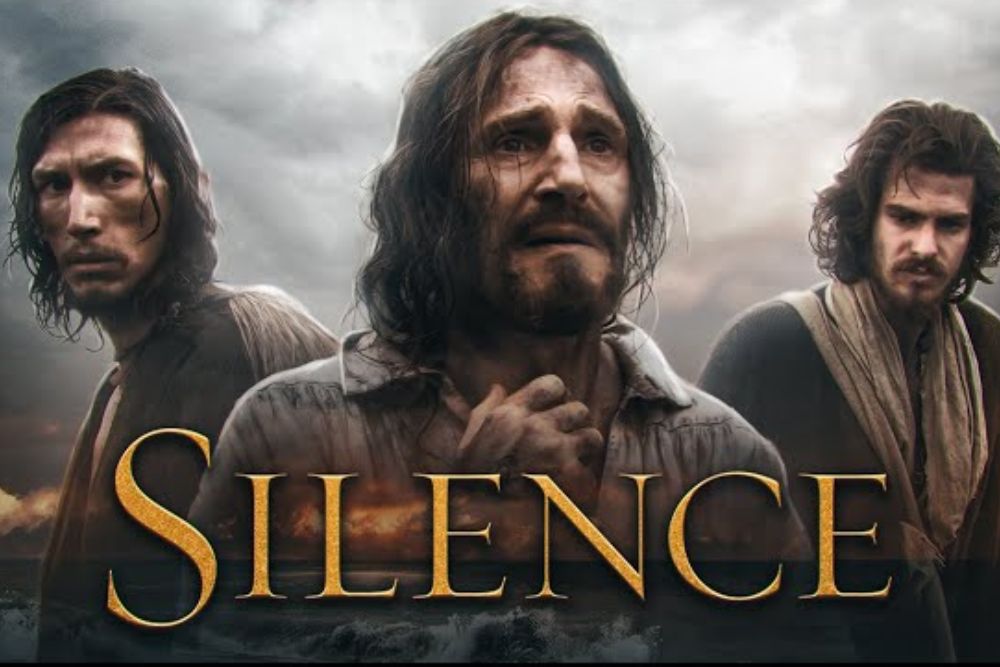
Why Silence Movie Review?
That is the question that I asked myself before starting this article. After all, there are many other films that have to do with the self-discovery theme (you can name things like “Life of Pi”).
So why? Why Silence? Why this somehow sensitive work?
Well, it’s simple: because it was the first thing that came to my mind when I thought about creating a movie review section on my blog.
I repeat – Silence is the first movie that I thought of when brainstorming ideas for my Film review category.
Why then?
I don’t know – maybe it’s because of a voice inside me that has been whispering to me the whole time. Maybe some kind of orchestration from the above.
Anyway, if you really think about it, you will see that Silence is a worthwhile reflection option for those on their journey of self-discovery. Here’s why:
- Themes of faith and doubt: The movie grapples with the question of faith, doubt, and the nature of belief in the face of extreme hardships. As such, it is a great toolkit for those seeking to explore their own core values.
- Resilience and identity: Scorsese’s work explores the character’s struggle to maintain their identity and purpose in a hostile environment; hence, its messages (I find) are extremely powerful to those facing challenges in their own lives.
So without any further hesitation, let’s go!
Silence Movie Summary
For the sake of your time (and to not spoil you), I will not go over the film’s plot – you can check out its Wikipedia article if you would like to have an overview of what to expect.
That said, for your convenience, I will give a quick summary here:
Silence (2016) is a historical drama directed by Martin Scorsese. It follows two Jesuit priests, Sebastian Rodrigues (Andrew Garfield) and Francisco Garupe (Adam Driver), who traveled from 17th century Portugal to Japan. Their mission was to find their missing mentor, Father Cristóvão Ferreira (Liam Neeson), who were rumored to have renounced his faith under torture.
Reaching Japan, they encountered a community of underground Christians forced to practice their faith in secret. The brutal shogunate hunted down these people, forcing them to apostatize by trampling on a crucifix (fumi-e) to avoid horrific torture and death.
Witnessing the suffering of his fellow believers, Rodrigues’ ideals were put to the ultimate test. Throughout the film, he was continuously forced to wrestle with doubts about his mission – and the price of his religious devotion.
In sum, the film explores themes of faith, doubt, and the resilience of the human spirit in the face of persecution.
Silence movie trailer
Silence was based on the novel of the same name by Japanese Catholic author Shūsaku Endō – who wrote it based on real events in the past (albeit with a few modifications/ elements of fictional creativity). Endō himself had been grappling with questions related to faith throughout his whole life. As such, many of his creative works revolved around the themes of Christianity, belief, and spirituality.
Silence Movie Review & Analysis
What constitutes righteousness?
From history, we all know that the arrival of Christianity in East Asian countries has given rise to a variety of complexities – most of which have to do with the conflicts between two ideologies, one represented by Christian missionaries, and one by the traditional folk religions (namely Buddhism, Taoism, Shintoism, Vietnam’s ancestor veneration, etc.).
And we all know that back in the day, people were not so tolerant and empathetic toward each other.
The Christian missionaries – fully believing in the righteousness of their own deeds – do whatever is necessary to “convert” local people. To make them abandon their ancestor’s ways – so that they may attain “salvation” and be free from eternal damnation. Even to the point of encouraging converts to “burn” down the temples, to rebel against the authorities (e.g. the Shimabara Rebellion is a good example of this).
On the other hand, the native monks/ priests saw the Western religion as a threat to the traditional way. And that the European priests were too arrogant and proud. And that those exotic people were actually initiating the Western invasion into the Eastern world. (OK, let’s not talk too much about politics here)
It’s too easy for us to choose one side in this conversation – and regard the other as “wrong”.
And yet, what is “right”, and what is “wrong” anyway?
Back in the day, most of us were taught in school that when you talk about movement, you need something as a milestone/ benchmark to determine whether an object is moving/ stationary.
And I believe the same rule applies to the determination of what is “right” and “wrong” too.
One thing I like about the Silence movie is that it does not deem which side is “right”, and which side is “wrong”. That is left for the audience to interpret on their own.
And if you really think about it, I dare to say that it is not so simple. Because what is the benchmark you are using here?
Are you saying that Christ has demanded us Christians to “spread the good news” – no matter the costs? That sacrifices are necessary for the Lord’s words to shine?
I will say that it is a valid argument – but mostly when applied to the self. Should we force others to endure hardships in our name? What kind of righteousness is that extremist attitude?
Is there any evidence in the Scripture to support that viewpoint?
How do we know – FOR SURE – that what we are doing is righteous?
And that leads us to the next topic.
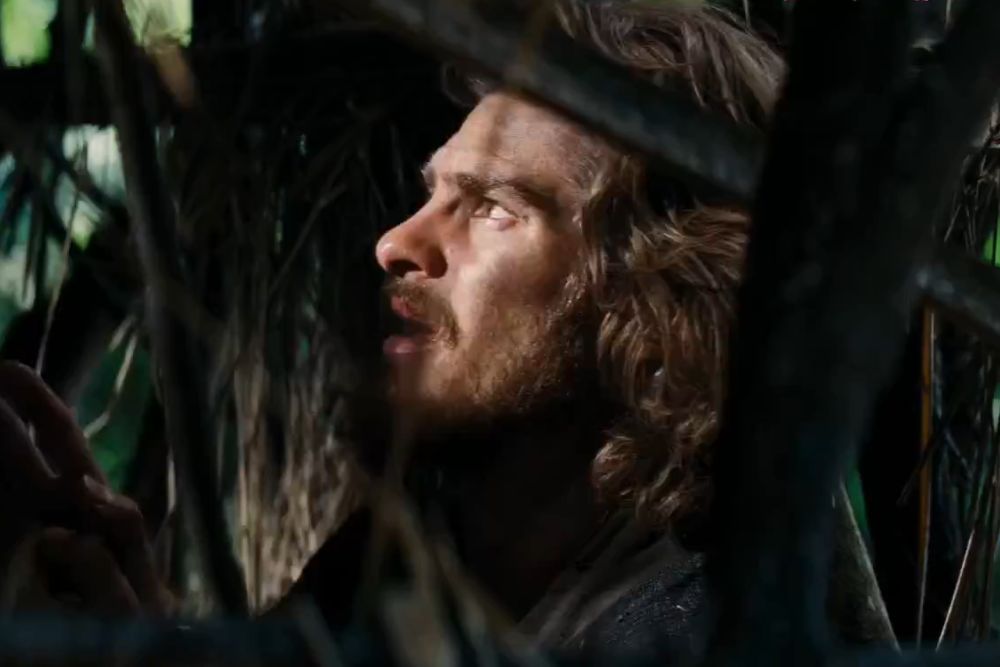
Silence movie review
The price of strict adherence to so-called doctrines
As mentioned by the priest I talked about above, the Silence film presents to the audience one excruciating situation: the authorities who persecuted the Japanese Christian early communities decided not to torture or kill the Western priests – but the Japanese believers instead.
The main reason was simple: to inflict pain, shame, and agony on the priests. To make them face a difficult choice – apostatize or not?
If they don’t, they will keep torturing and killing the local believers.
If they do, the torture will stop.
This situation reminds me of one famous quote by Shakespeare: To be or not to be?
Is it a wise choice to force people to die for their faith? Again, whether your answer is “yes” or “no”, what kind of benchmark are you using to determine the response here?
When we let people endure hardships, is it because we truly believe that it’s worth it?
Is it something that the Divinity commands us to do?
Or, should I say does it have to do with our own ego? With our so-called “honor”?
Think about it – if the priests renounce their faith in public, the torture will stop. But so will their reputation as priests.
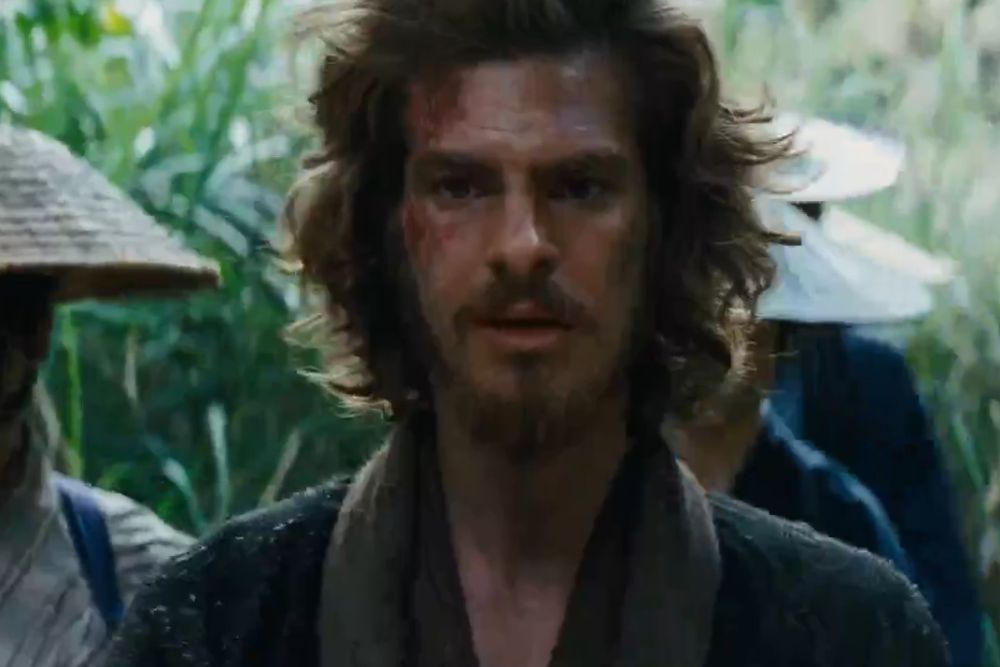
Silence movie review
In the movie, after Father Rodrigues stepped on the fumi-e, things did not go so well. Although the Japanese believers were rescued, he could no longer call himself a priest.
And he was humiliated by the local people (it’s painful to see innocent kids making fun of the priest, just because of their own ignorance, and of the “political” things that they were not – and should never – be aware of)
And, he was forced by the local authorities to assist in “purging” the leftover influence of Christianity in Japan.
What if Father Rodrigues has done the opposite thing – by staying “true” to his teachings and letting people perish “in the name of the Lord”?
What good would it do here?
Speaking of which, I remember one thing I found out when researching about the underground Christian communities in Japan (or Kakure Kirishitan – 隠れキリシタン) is that many have decided to step on the fumi-e – to save their own lives.
And yet, it’s exactly because of their seeming act of “renouncing faith” – that Christianity in Japan was able to survive. That the seeds were not destroyed (though not sure if it was “poisoned” or not – let’s talk about it in another article).
What about that?
Is stepping on the fumi-e an act of cowardice, of weakness? Again, what benchmark are you using to come up with an answer here?
On the other hand, forcing people to die to “glorify the Lord” – is it true Christianity? Or is it our own pride stepping in?
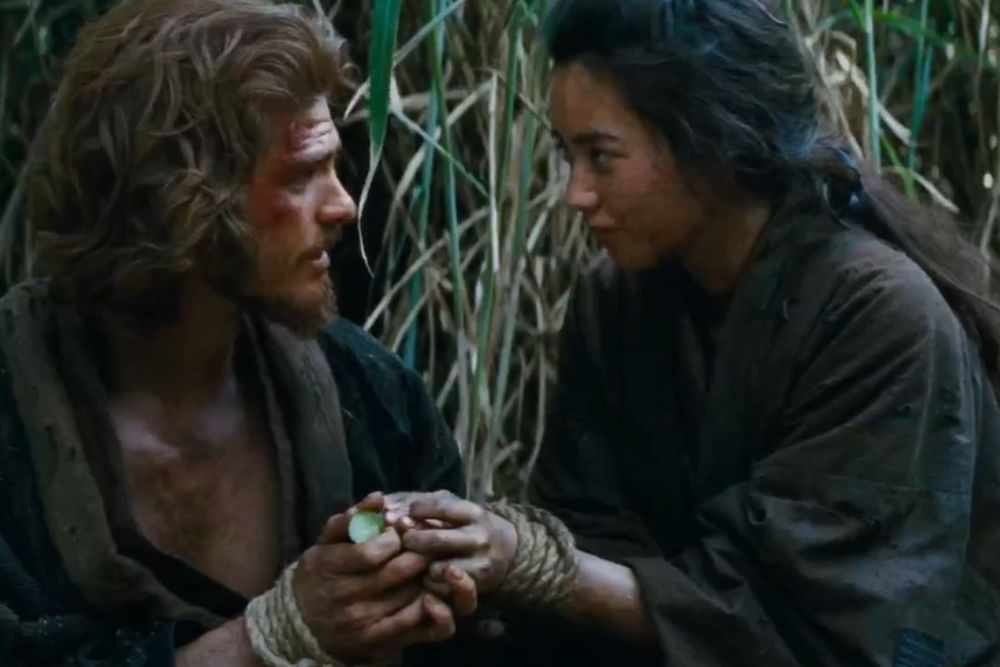
Review of the movie Silence
Spirit & Compassion over Law & Pride
If you think about it, it has been mentioned in the Scripture that the heart of the law is to live a good and compassionate life, not just to follow rules blindly. Here it is (Matthew 12:1-8):
At that time Jesus went through the grainfields on the Sabbath. His disciples were hungry and began to pick some heads of grain and eat them. When the Pharisees saw this, they said to him, “Look! Your disciples are doing what is unlawful on the Sabbath.”
He answered, “Haven’t you read what David did when he and his companions were hungry? He entered the house of God, and he and his companions ate the consecrated bread – which was not lawful for them to do, but only for the priests. Or haven’t you read in the Law that the priests on Sabbath duty in the temple desecrate the Sabbath and yet are innocent? I tell you that something greater than the temple is here. If you had known what these words mean, ‘I desire mercy, not sacrifice,’ you would not have condemned the innocent.”
I would say that among the Pharisees who condemned Christ’s disciples in the example above, many were actually people with good faith. That they saw the disciples as people who broke the law – and that such an action needed to be “corrected”.
In other words, they criticized others not really because of the need to “lift” themselves up – but because they truly believe in the righteousness of their ideologies.
Does that sound familiar to you?
I have to admit that I myself have many times fallen into this self-righteous trap. A lot of times, I strongly believe that people who have “crossed the lines” (no matter the setting) deserve to be “punished” and “persecuted”.
That’s a perfectly understandable viewpoint.
However, is it the true spirit of Christianity? Of living as a human being?
Our natural tendency is to become so obsessed with sticking to the rules/ doctrines – literally and linearly – that we completely forget about the people’s hearts. About what’s really important when we preach the “good news”.
We are so focused on outward appearances – that we become unaware of the importance of genuine love and helping others.
You travel over land and sea to win a single convert, and when you have succeeded, you make them twice as much a child of hell as you are.
First clean the inside of the cup and dish, and then the outside also will be clean.
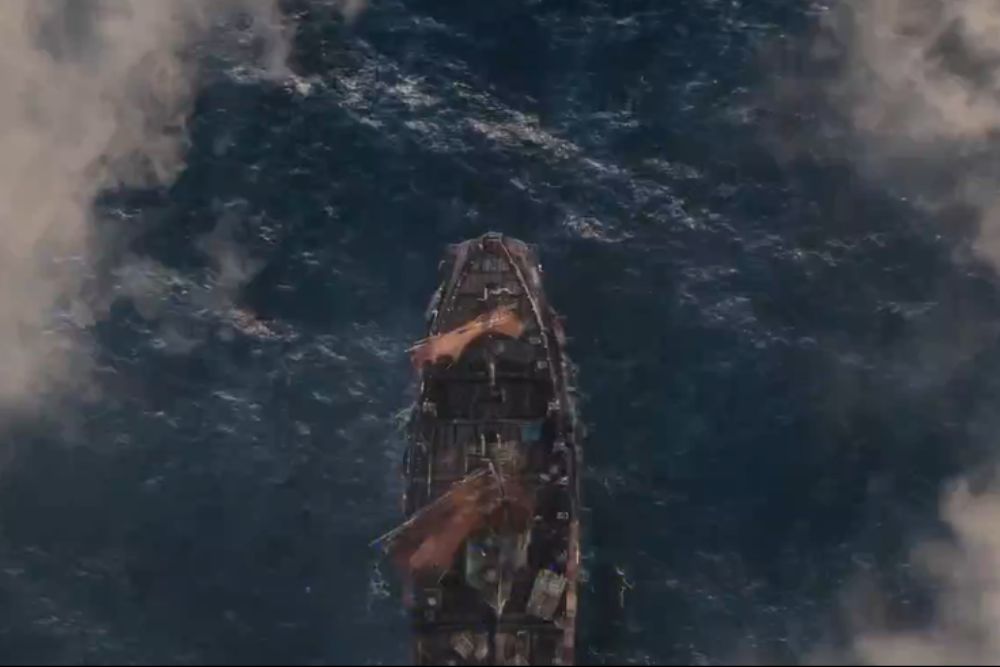
Silence movie review
We are all aware of the many “holy wars” (I would say that it applies to all types of war – not just the ones that concern religions) that have taken place in history. Of the consequences they have left behind.
And I would say that most of the time, these wars were started because people were too proud. Too arrogant. Too self-centered. Too obsessed with “following the rules” that they dare to proclaim “Our God is better than yours”.
If we think about it on a broader scale, I would say that most wars/ conflicts have to do with the mindset “Our ideologies are better than yours”.
Again, what is the benchmark that we are using here?
We force people to die in the name of something – but is it really worth it?
Think about it.
If you say that the law commands us to initiate hostilities, I will ask: What kind of law?
You have a fine way of setting aside the commands of God in order to observe your own traditions.
Mark 7:9
All in all, I would like to say that following rules shouldn’t come at the expense of helping others in need. Just look at the priest and the Levite mentioned in the Parable of the Good Samaritan – and you will see why.
Back to the story in the Silence movie, I have one question for you to ponder over:
Is it a wise choice to let people suffer? Whatever your answer is, does it truly come from your heart?
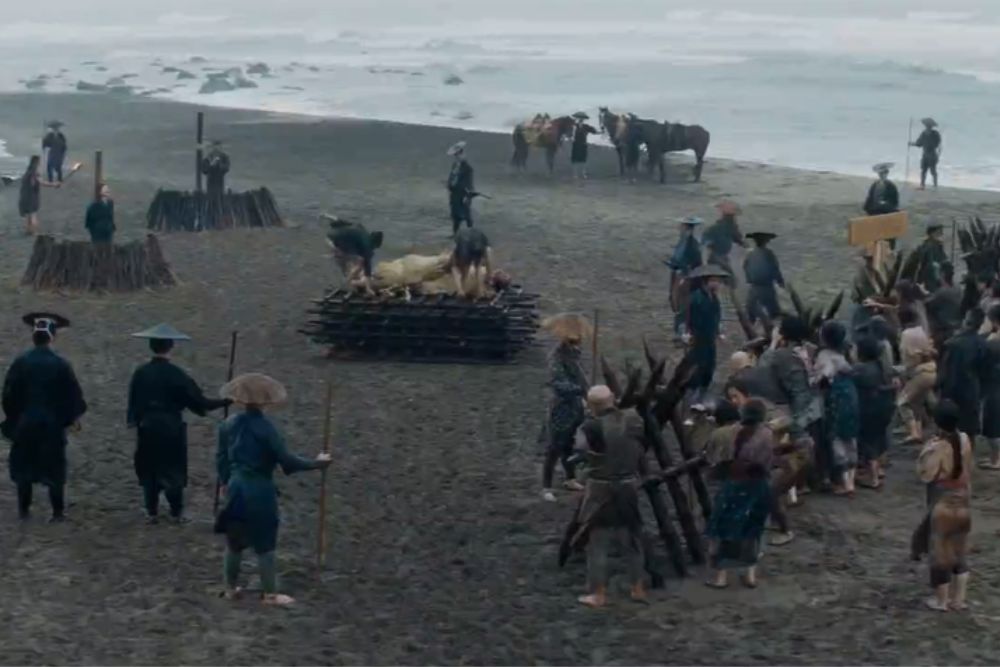
Silence movie review
What does it really mean to be a Christian (or should I say, a true human being)?
A common claim that I often hear from more conservative Christians is that our mission is to convert as many people as possible. That those who do not heed the call of Christianity are doomed for eternal damnation – no matter who they are. Even if they are someone like the Dalai Lama.
But what does it mean to be a Christian anyway?
I remember reading Life of Pi back in the day. In the book, when Piscine Molitor Patel reached out to a local priest to be baptized, he said something like “You are already a Christian”.
This makes me think – does being a Christian have to do with baptism? Does it mean one has to be OFFICIALLY accepted into a Church?
To me, what truly matters is to practice the teachings of Christ. To do what he has commanded us to do. And what is it?
By this everyone will know that you are my disciples, if you love one another.
John 13:35
You see, it’s about spreading the message of love. It is love that defines the disciples of Christ.
Whatever you do, think about it: Is my action starting from my desire to love others? Or does it have to do with my own ego?
When you do something good to others, is it motivated by purity in your heart – or is it meant to make yourself look good?
(Speaking of which, I think you may want to check out this example in one of my articles – which discusses the idea that many times, we act out of our own self-interests rather than caring for others)
Also, when we talk about being a Christian, I think another important thing is to let go of established ways – and be flexible enough to embrace new practices.
What does it mean here?
In the Silence movie, Father Rodrigues noticed that his fellow Japanese believers tended to act differently compared to Westerners. Specifically, they seemed excessively focused on material symbols (e.g. the cross) rather than the “invisible”. On the physical signs rather than the faith itself.
Later in the film, Father Ferreira told Rodrigues that even if the Japanese would convert, Christianity in Japan would become something different from what was thought of/ practiced in the West. That something had always been inherent and would not be changed so easily.
Mountains and rivers can be moved – but men’s nature cannot be moved.
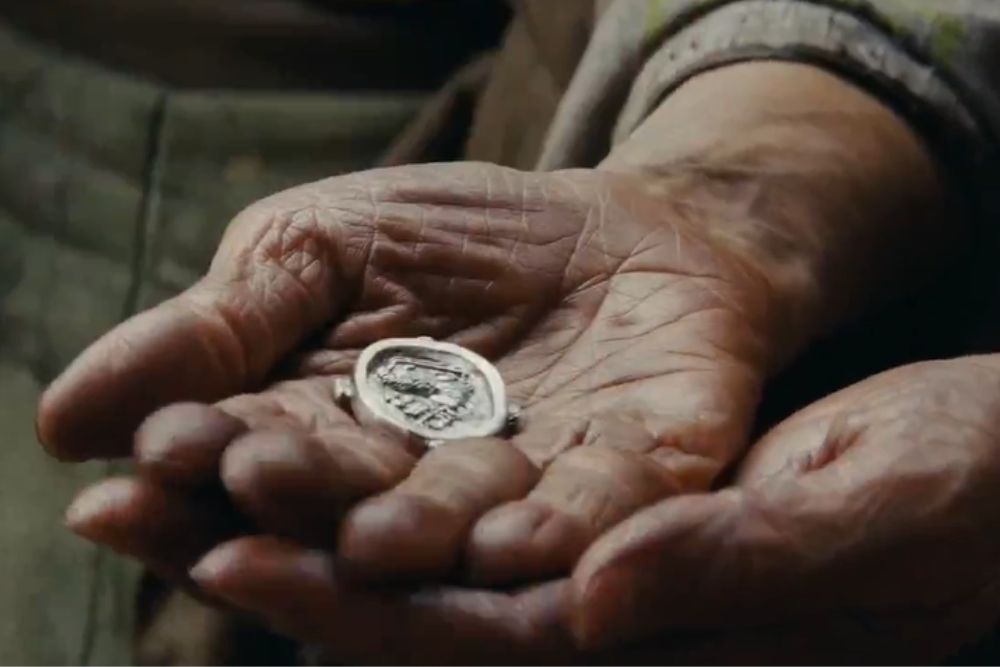
Silence movie review
According to Ferreira, whatever the priests did, to the Japanese people, their Christian God would always be interpreted based on their notion of Dainichi (大日 – which literally means “the Great Sun”).
I cannot agree more with this. After all, I dare to say that the same thing does apply to my own country.
In Vietnam, God is called “Thiên Chúa”, “Thiên Chủ” (天主), or “Ông Trời” – which translates as “the King of Heaven” (again, I think the Western term “Heaven” may not be the same as the Eastern concept of “Thiên”/ 天). While that may seem like a good description of the Christian God, it was actually based on a figure in Eastern mythologies named “Ngọc Hoàng Thượng đế” (玉皇上帝) – who is regarded as the supreme ruler over heaven.
The term “Thiên Chúa”/ “Ông Trời” was coined by the Western priests when they came in contact with the local people – mostly because it described their God in a way that resonated with the natives. It made it easier for the locals to understand what they were talking about – which helped with preaching and converting them.
So as you may see, a lot of things we take for granted are actually not like what we may think.
Many things are inherent and cannot be changed.
When we introduce others to our ideology, they will always interpret it based on their background – and adapt it to suit their old “ways”.
And there’s no way to force them to think like us (nor would I say it is a practical/ advisable idea)
In Vietnam, it’s a common practice that people rever God/ the saintly figures in a way that resembles idolism. If you pay attention, you will notice that people often gather around statues of Christ/ Mary/ others to pray for heavenly interference.
From my own research, such a behavior has roots in traditional Eastern practices. And to many Westerners, it is not only exotic – but also something that should be restrained/ discouraged.
But is that really important?
What’s more crucial here – preaching the message of love, or forcing people to adapt one’s own “way”?
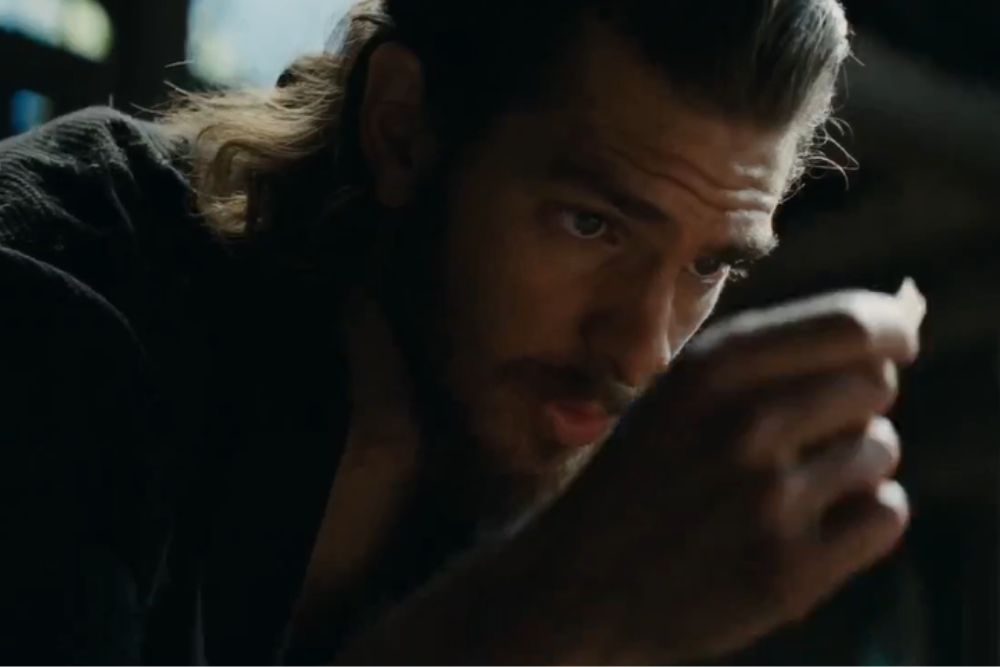
Silence 2016 movie review
We are all like Kichijiro-san (even if you don’t want to admit it)
One notable character in the Silence movie is Kichijiro – who repeatedly betrayed his faith to survive torture, and then constantly asked for forgiveness.
I have to admit that initially, I was not quite content with this guy. A weak-minded coward, I thought.
But then, am I better than him?
Isn’t it true that I have always been struggling with faith and spirituality for my whole life?
If I had been in a situation like him, would I have acted in a different way?
As Christians, we have always been “educated” about the importance of utmost holiness. We are so accustomed to saintly figures who will just not waver in the face of adversity and suppress – that we tend to smirk at the idea of being weak and vulnerable.
We rever perfectionism so much that we forget about our humane side, and cling to unrealistic standards instead.
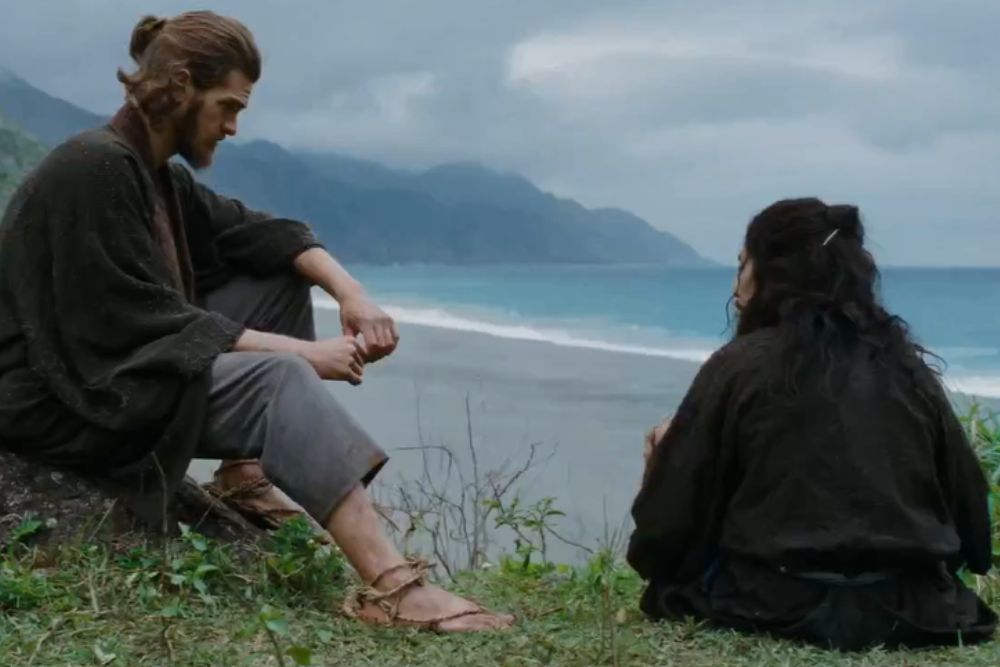
Silence movie review
Sometimes, it gets to the point that we act in a way very similar to the scribes in the Scripture – we condemn the so-called “tax collectors”, “prostitutes”, “sinners”, etc., thinking that they need to be separated from the community. And that anyone who comes in contact with such people (e.g. Christ) has a problem.
But is such a behavior in alignment with the message of love and compassion taught by Christ?
Are we truly better than the “tax collectors”, “prostitutes”, “sinners”, etc. out there? Are we not without our own flaws (or sins if you would like to use a religious term)?
Reflecting on the character Kichijiro has prompted me to seriously think about my own view of faith and heroism. Can faith exist without outward displays of strength?
Is it normal for a person to repeatedly stray away from the “way” – but never lose the desire to come back and become better?
I myself think it’s perfectly OK. After all, we are all treading the path of self-discovery – toward enlightenment. No matter how good we think we are, we have always been making mistakes along the way. Some are serious, others are less fatal (but still, flaws are flaws).
Should we say something like “I will never again make mistakes” to ourselves?
Or should we say something like “On my own, I will never be perfect. I will make mistakes from time to time – if I do, I plead for everyone’s forgiveness. At the same time, I hope that everyone will accompany me on the journey – to become my accountability partners, to lend me your courage/ wisdom, and to prevent me from ever stumbling again“?
Isn’t that also a type of strength? The strength to admit our vulnerabilities – and ask for help (which has somehow become forgotten in the current society)? To never become so proud – to the point that we no longer crave redemption (or smirk the seemingly weak-minded people who do)?
Even if we may struggle from time to time, what’s really important is to always do our best to keep the faith burning – no matter how weak it is. Because with grace, one day we will see the light again.
(What I have been talking about may seem to be religion-oriented – but really, if you think about it, you can apply the same principles to secular settings too)
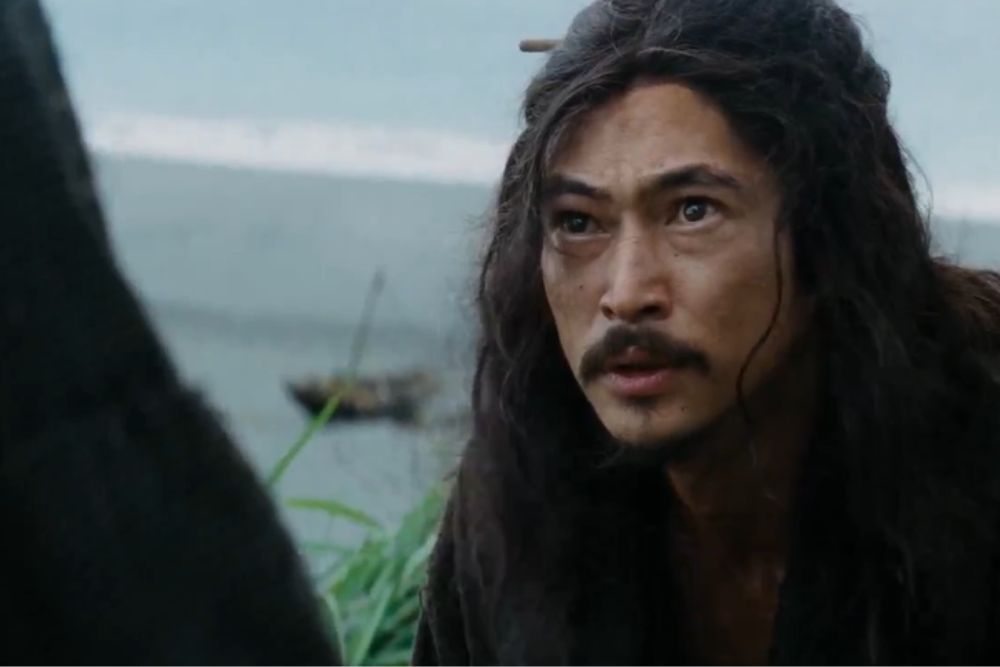
Silence movie review
There is no glory in suffering
This message is so powerful that I have to repeat: There is no glory in suffering.
Silence challenges the romanticized view of martyrdom often depicted in conventional media. It doesn’t shy away from showing the brutal torture endured by the early Japanese Christians. There was no sense of glory, just unimaginable pain.
It is often claimed by priests and some religious people that the martyrs faced persecution with their chins up. With unmatched valor – knowing that their deeds would be rewarded.
While that’s really inspiring, I doubt that it strays far away from the reality.
Pain is pain – there is no going away from it.
Within the film, you will see that there is no romanticized image of martyrdom, only the brutality of persecution.
People died, one after one, their blood spilling over the execution ground.
Despite his best efforts, Father Rodriguez found no triumphant resolve witnessing his fellow believers’ torture. He only met unbreakable silence.
His mentor – who was expected to not waver and to become a glorious martyr – broke down and koronda.
That’s the truth. We all see that in this world. In our life. There is no denying it.
Within both religious and secular settings, people enjoy preaching about the value of sacrificing “for the greater good”. That one’s suffering lays the foundation for future growth. That one day, we may be greeted with a brighter life – something like “and they live happily ever after”.
It’s true – but we often over-emphasize the “future”, so much to the point that we push others (including ourselves) to have unrealistic expectations and forget about the ups and downs of the way that leads there.
We are so obsessed with “the greater good” – that we underestimate the importance of empathy and compassion with people’s misfortunes and weaknesses.
And yet, despite the bleakness, there were moments where the film’s characters found solace in their faith, even amidst torture.
In fact, IT IS within suffering that ones find consolation and peace.
IT IS in the most excruciating hardship – that one discovers a deeper connection to their beliefs.
IT IS within dead silence – that one hears the voice and realizes that, they have not been alone all the time.
In the end, the flickering candle or the silent prayers became symbols of holding onto faith in the darkest times.
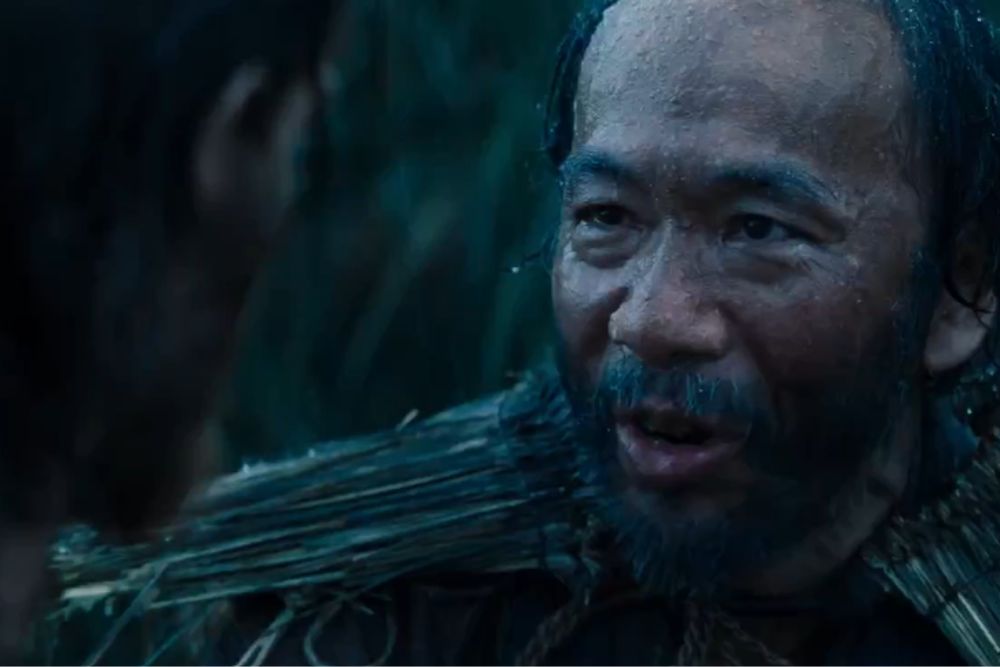
Silence movie review
Movie ending explained
The Silence film concludes with an ambiguous ending that leaves room for interpretation. After enduring immense suffering and witnessing the brutal persecution of Christians in Japan, Father Rodrigues had to face a terrible choice – to renounce his faith or to watch innocent people be tortured.
In the end, he ultimately stepped on the fumi-e, to save his fellow believers.
Rodrigues’ life completely changed after that seeming act of “apostasy”. Partially with the orchestration of the local authorities, he outwardly converted to Buddhism and lived the rest of his life as a Japanese citizen – with a Japanese wife. Aside from that (as I have mentioned above), he was tasked with the responsibility of helping the authorities “purge” all materials that have to do with Christianity – even writing books about the fallacies of the Western religion.
Despite his outward actions, there are hints that Rodrigues’ faith might not have been entirely gone.
After years of living in Japan, Rodrigues eventually passed away and was given a Buddhist funeral rite. However, what’s striking though is that in the final scene of the movie, it was revealed that he was clutching a small cross in his hands – which seems to completely contradict what he had been doing before.
So it turns out that he had been silently keeping his faith – albeit without the ability to express it publicly.
And his Japanese wife knew about this – and respected this.
He had made a pragmatic sacrifice to protect others, but his inner faith remained unbroken.
A Kakure Kirishitan.
Some might say that the scene is a reminder of Rodrigues’ failure and the burden of his choice rather.
Again, I will leave it for you to interpret on your own.
Does Silence’s ending highlight the fragility of belief in the face of suffering, or does it convey a symbol of continued, secret faith – despite outward apostasy?
Is the movie a euphemism for the crisis of faith, or is it a message about the fact that the Omniscient has always been alongside humanity in all of their suffering?
Please – find an answer on your own. And even if you cannot come up with a satisfactory explanation – I assure you, the process of self-reflection will enrich your life and ultimately make you a better person.
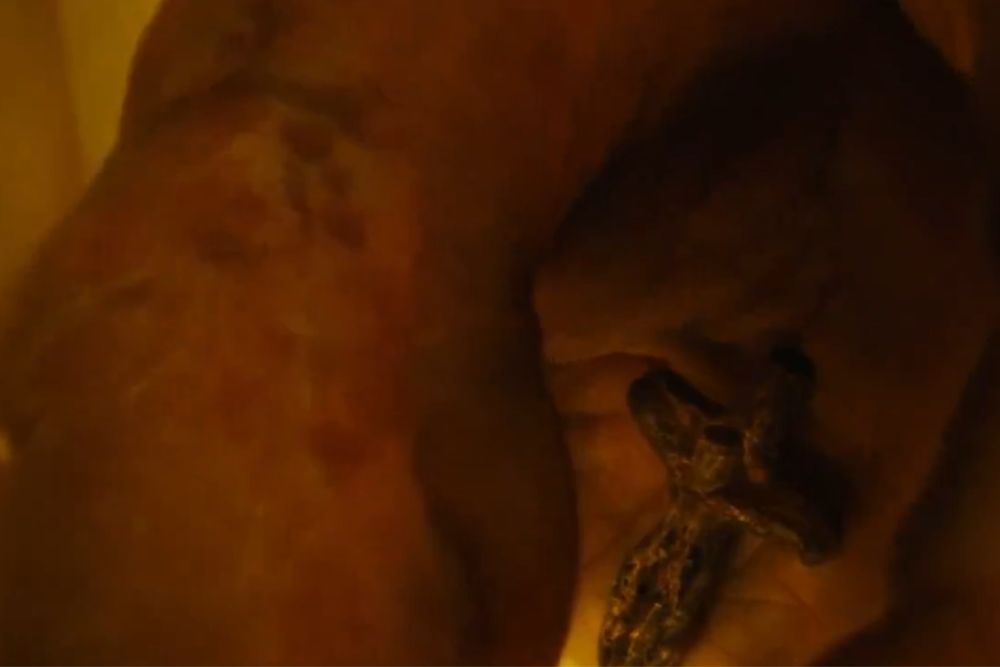
Silence movie review
Should we act like Rodrigues?
I remember the priest I mentioned above saying that the Church normally doesn’t consider people like Father Rodrigues heroes or saints – most of the time, the Fathers tend to keep silent (which I think is respectable – after all, it’s challenging for ANY of us to approve of unconventional acts/ those that stray away from the norms).
And yet, according to him, Rodrigues’s last act should be considered heroic – even saintly.
Why?
Because he did it not for saving his own life – but for others (in this case, the Japanese believers).
He sacrificed his own dignity for the people who followed him.
Some might say that Rodrigues did it out of his own weakness – out of his succumbing to the voice of the Devil. And yet, who are we to say something like that?
How do we know – for sure – what had been going on inside Rodrigues?
Only he himself and the Omniscient know. Only the mightiest one is capable of judging his actions.
One friend of mine used to remark to me that when it comes to ethics, it’s not so simple to determine if an action/ behavior is worth it or not. No ethical instructions can apply to every situation – the only thing that matters is what’s going on inside the person themselves.
It has to do with whether their action starts from the heart (心, or kokoro – one term that I really like).
And I cannot agree more with him.
To demonstrate this point, I would like to mention the following quote from the Gospel of John:
Let any one of you who is without sin be the first to throw a stone at her.
John 8:7
Our tendency is to think of spiritual things as something of utmost sacredness. To equate the Omniscient with a strict father who enforces rules and expects complete obedience.
But should we do it that way?
When I did my research about Shūsaku Endō – the author of the book that inspired this movie, it seemed to me that one central theme of his work was the depiction of the Divinity as a loving mother who always welcomes their children back – no matter what deeds they have done.
Like the father of the prodigal son, who has responded to his other jealous son:
You are always with me, and everything I have is yours. But we had to celebrate and be glad, because this brother of yours was dead and is alive again; he was lost and is found.
It’s less about the deeds but more about the heart. Because, no matter what deeds we have performed, we are always imperfect.
No matter how “good” we think we are (or what people say about us), we are always sinners in the eye of the Omniscient.
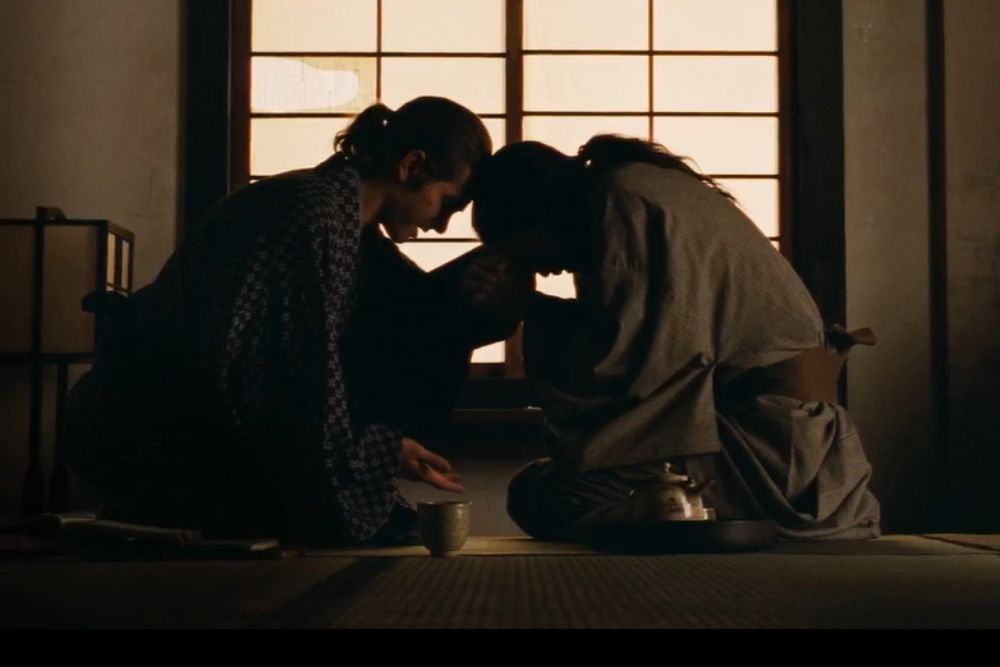
Silence movie review
Is Silence Worth Watching?
It’s hard to come up with a concrete answer to this question – because, frankly, the movie is not easy to watch. Especially for Christians.
It’s not a film that ends with something like “and they live happily ever after that”. Not one with a happy ending.
It’s not something you will enjoy if you just want to have a relaxing day.
It’s not an ideal choice if you are looking for a source of religious entertainment – in a conventional way.
Silence challenges us to rethink everything – to question ourselves whether we truly know things. Whether we are really righteous (as we might have thought about ourselves).
The reflection journey doesn’t end after you finish watching the movie. In fact, it’s what happens later in your mind that really matters.
And yet, that’s exactly why Silence is worth watching (at least to me). It pushes us to have questions about ourselves – which, I strongly assure you, will enrich your spiritual life.
If you are not a Christian, but interested in spiritual things in general, I say: “Go for it!”.
If you are a Christian, I say: “You WILL REGRET not watching it!”
(For those who might respond that the movie includes many controversial elements, I say to them – that’s exactly why you have to experience it. After all, what’s the point of a creative work that doesn’t make us THINK – with the exception of kid-friendly materials?)
To me, the film is a strong reminder of the complexities within one’s life journey.
That we are inherently fragile creatures who need constant reflection and connection with the divinity.
That we should never be full of ourselves – no matter how “saintly” we think we are.
That we will never attain true greatness – until we let go of our ego and let ourselves be part of the world. Of the invisible “Force” that makes up this universe.
We can do nothing on our own – only with grace (and the help of others) are we capable of navigating life’s complexities.
Don’t you think so too?
Quotes from Silence Movie
I pray but I am lost. Am I just praying to silence?
The price for your glory is their suffering!
I suffered beside you. I was never silent.
There is evil all around in this place. I sense its strength, even its beauty. But there is none of that in this man. He is not worthy to be called evil.
Where is the place for a weak man in a world like this?
Why must their trials be so terrible, and why when I look in my own heart do the answers I give them seem so weak?
To help others is the way of the Buddha and your way, too. The two religions are the same in this. It is not necessary to win anyone over to one side or another when there is so much to share.
A Few Parting Words
And that’s it – my Silence Movie review! A little bit long, I have to say – but I hope that what I have just shared with you is not too shabby.
As you can see from the analysis above, Silence is not a movie easy to digest. It does not provide quick answers; rather, its ambiguous conclusion invites us to reflect on the complexities of faith and the human condition. In the end, we are prompted to consider:
- Can faith coexist with actions that seem to deny it?
- Is there a place for compromise in the face of extreme persecution?
- Does the Divinity’s silence signify absence – or rather, a different kind of presence?
- etc.
I will leave the discussion here for you to continue on your own. After all, it’s the ultimate purpose of self-discovery, don’t you agree?
There are two ways of spreading light: to be the candle or the mirror that reflects it.
Edith Warton
Other resources you might be interested in:
- 18 Spiritual Films to Inspire & Enlighten
- 20 Best Existential Movies for the Questioning Heart
- 20 Best Movies With Ethical Dilemmas for Self-reflection
- 50 Spiritual Questions to Awaken the Soul
- 37 Spiritual Activities to Cultivate The Inner Light
Let’s Tread the Path Together, Shall We?


